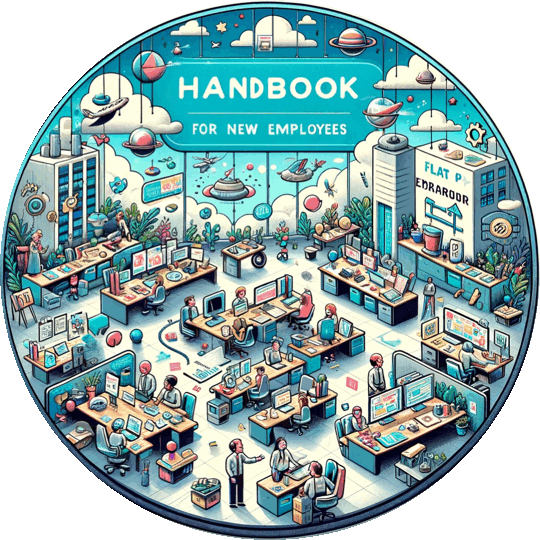🎉 Congratulations! If you've got this POAP, you’re officially in the exclusive club of folks who are ready to break free from the Bayer CloudTech UserGroup email chain! 🥳 Time to wave goodbye to those inbox notifications! ✌️💌
Bayer Girls' Day is an annual event designed to encourage young women to explore careers in science, technology, engineering, and mathematics (STEM). The day typically features interactive workshops, hands-on experiments, and mentoring sessions led by experienced professionals, allowing participants to gain insights into various fields and build confidence in their skills. Through engaging activities, Bayer Girls' Day aims to inspire girls to pursue STEM careers and foster a more inclusive environment within these industries. It's an opportunity for young women to network, learn, and envision themselves in future roles within science and technology. Art&Text by ChatGPT.
Aspirin, one of the world's most famous and widely used medications, was first registered on March 6, 1899, by the German company Bayer AG. The active ingredient, acetylsalicylic acid, was synthesized by chemist Felix Hoffmann. His motivation was personal; he sought a less irritating substitute for salicylic acid to alleviate his father's rheumatism. The history of aspirin's active ingredient dates back centuries, with salicylate-rich willow bark being used for pain relief and fever reduction in various cultures. However, it was not until the 19th century that scientists began to isolate and modify salicylic acid to reduce its side effects, leading to the creation of acetylsalicylic acid. Upon its release, aspirin quickly became a staple in medicine cabinets worldwide, renowned for its efficacy in reducing pain, fever, and inflammation. Over time, studies also revealed aspirin's role in reducing the risk of heart attacks and strokes, attributing to its blood-thinning properties. Internationally, aspirin is known by various names, such as "acetylsalicylic acid" in scientific communities and "aspirina" in several Latin languages. In some countries, it is sold under different brand names, but "aspirin" remains a globally recognized term. Aspirin's name comes from "A" for acetyl, "spir" from the spirea plant (a source of salicylate), and "in," a common suffix for medications at the time. More: https://en.wikipedia.org/wiki/Aspirin Art&Text supported by ChatGPT.
World DJ Day, March 9, 2024
2024-03-11
World DJ Day is a tribute to disc jockeys (DJs) worldwide, honoring their influence on music and culture. A DJ plays recorded music for audiences in various settings like clubs, radio, parties, and festivals, blending tracks seamlessly and often engaging in music creation and remixing. The concept dates back to the 1930s, but it was in the 1970s that DJs gained significant prominence with the rise of disco in the U.S. Since then, their role has evolved, encompassing various genres and influencing music trends. DJs have transitioned from being mere record players to artists who remix, produce, and create music. Their popularity has skyrocketed, with the global DJ equipment market projected to grow significantly, indicating the profession's expanding appeal. Top DJs can earn millions per year, highlighting the lucrative nature of the profession. DJ festivals and competitions attract thousands of attendees, showcasing the widespread enthusiasm for DJ performances. Some interesting Guinness World Record holders: DJ Archie youngest club DJ (four years old), Mark Ursa longest marathon DJ concert live stream (51 hours, in Brazil). World DJ Day also serves a charitable purpose, encouraging DJs and fans to support humanitarian causes, demonstrating the community's commitment to giving back. This day not only celebrates the artistry of DJs but also their role in uniting people through the universal language of music. https://en.wikipedia.org/wiki/Disc_jockey Art&Text🫶ChatGPT.
On National Doctor's Day in Venezuela, March 10th, we celebrate the invaluable contributions of Venezuelan medical professionals who have dedicated their lives to saving lives under very difficult conditions. This day honors Dr. José María Vargas, a distinguished Venezuelan physician and scientist, who was elected President of Venezuela in 1835. His legacy in medicine and surgery laid the foundation for future generations, emphasizing the importance of medical ethics and education. Venezuelan doctors have made significant contributions to global medicine. A notable Venezuelan contribution to medicine is the work of Dr. Baruj Benacerraf, a Venezuelan-American immunologist. He discovered the Major Histocompatibility Complex (MHC) genes, which play a crucial role in the immune system's ability to differentiate between self and non-self. This discovery has had profound implications for organ transplantation, autoimmune disease treatment, and vaccine development. He was awarded the Nobel Prize in Physiology or Medicine in 1980. Sara Bendahan was the 1st Venezuelan lady to graduate as Medical Doctor in 1939. Venezuela has approximately 16.6 physicians per 10,000 people. The medical sector faces severe challenges due to the ongoing political and economic crisis. Hospitals across the country are grappling with shortages of staff, drugs, supplies, and basic services. This is impacting the quality and accessibility of medical care for the Venezuelan population. Art&Text🫶ChatGPT.
Multiple Personality Day, March 5, 2024
2024-03-11
Multiple Personality Day raises awareness about Dissociative Identity Disorder (DID). It aims to educate and debunk myths surrounding DID, a condition stemming from severe trauma, often in childhood, leading to two or more distinct identities or personality states within an individual. DID has been recognized for decades. The condition is rare, 1%-3% of the population, with maybe a higher prevalence in females. People with DID often have a remarkably high tolerance for pain and may not notice injuries in some of their alternate identities. Treatment primarily involves psychotherapy, focusing on integrating the various identities into one. Approaches include cognitive-behavioral therapy and art therapy, among others. Medications may target associated symptoms like anxiety or depression. Noteworthy is the increased awareness from the "Sybil" story in the 1970s, showcasing a woman with 16 personalities, highlighting DID's complex nature and the potential for recovery with appropriate support and treatment. Controversy is very high. From Wikipedia: (Many)... believe DID is caused by traumatic stresses forcing the mind to split into multiple identities, each with a separate set of memories, (others) that the symptoms of DID are produced artificially by certain psychotherapeutic practices or patients playing a role... Ongoing research and clinical practice continue to refine our understanding and care for those affected. Wiki: https://bit.ly/3TqsswS Art&Text🫶ChatGPT.
International Women's Day, March 8, 2024
2024-03-11
International Women's Day (IWD), celebrated on March 8th annually, marks a global observance to honor women's achievements and advocate for gender equality. The day traces its origins to the early 20th century, catalyzed by women's labor movements in North America and Europe. The first National Woman's Day was observed in the US on February 28, 1909, inspired by the Socialist Party of America. In 1910, Clara Zetkin, a German activist, proposed the idea of an international day at the International Socialist Women's Conference, leading to the first IWD in 1911, celebrated in Austria, Denmark, Germany, and Switzerland. A core motive for IWD's inception was advocating for women's suffrage rights. The IWD gained recognition from the United Nations in 1977, which officially invited member states to proclaim March 8 as the UN Day for women's rights and world peace to highlight issues such as gender inequality, violence against women, and the need for gender parity in various sectors. In some countries, IWD is an official holiday, and men honor the women in their lives with flowers and small gifts. While there have been advancements in women's participation in politics and the workforce, significant gaps remain. IWD has mobilized movements, influenced policies, and brought attention to women's rights, showing the power of collective action in driving social change. https://en.wikipedia.org/wiki/International_Women%27s_Day Art&Text🫶ChatGPT.
Bulgaria Liberation Day, March 3, 1878
2024-03-04
Bulgaria's Liberation Day, observed on March 3rd, commemorates the country's liberation from Ottoman rule, achieved in 1878 through the Treaty of San Stefano (Then a village west of Constantinople, present-day Istanbul; Today's name is Yeşilköy). This pivotal event followed the Russo-Turkish War (1877-1878), where Russia, with Bulgarian volunteers, fought against the Ottoman Empire to liberate Bulgaria. The war was a response to the Bulgarian April Uprising in 1876, which, despite its suppression, drew international attention to the Bulgarians' plight under Ottoman oppression. The conflict's brutality, particularly the Batak massacre, garnered sympathy for the Bulgarian cause, influencing Russia's decision to intervene. Key figures include Russian Tsar Alexander II, who ordered the military campaign, and Bulgarian revolutionary leaders like Vasil Levski and Hristo Botev, who laid the groundwork for national liberation through their resistance movements. The Treaty of San Stefano created a large autonomous Bulgarian principality under Ottoman suzerainty, but the subsequent Berlin Congress in July 1878 reduced its territory significantly. Despite this, March 3 remains a symbol of Bulgaria's struggle for independence and national identity, celebrating the end of almost five centuries of Ottoman dominance and the beginning of a new era in Bulgarian history. https://en.wikipedia.org/wiki/Liberation_Day_(Bulgaria) Art&Text🫶ChatGPT.
Valve Corporation, an influential player in the gaming industry, was co-founded by Gabe Newell in 1996 after he left Microsoft. Valve produced iconic games like "Half-Life" and "Portal" and revolutionized digital distribution with its Steam platform. Newell also implemented a unique flat organizational structure that fosters innovation and employee autonomy, setting them apart as a distinctive and forward-thinking company in the tech world. The Valve Corporation Handbook for new employees, published March 2012, is a distinctive guide reflecting the company's innovative and unconventional work culture. It has a candid and engaging approach to introducing Valve's flat organizational structure, where traditional hierarchies are eschewed in favor of a more democratic, self-managing ethos. Employees at Valve enjoy an unusual level of autonomy, with the freedom to select their projects and teams, emblematically illustrated by the concept of desks on wheels, enabling staff to physically move to the workspaces where they feel they can contribute the most. They hire "T-shaped" individuals—people who are not only experts in their field but also like to collaborate. The handbook includes humorous illustrations and comics to convey the company's culture and expectations; it is a reflection of the company's core philosophy that prioritizes innovation, independence, and a deep belief in its team members. Handbook: https://bit.ly/3wzMn3r Valve: https://bit.ly/3wCO7Jr Art&Text🫶ChatGPT.








